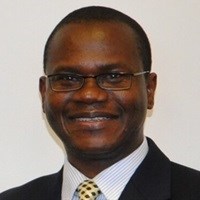Multi-million grant for research training for African scientists

The R108,15 million (£5.25million) was awarded by the Wellcome Trust, through the DELTAS Africa initiative, to the Consortium for Advanced Research Training in Africa+ (CARTA). The grant is a continuation grant. It is the second grant that CARTA has received from the Wellcome Trust, but the first through the DELTAS Africa initiative.
The Wellcome Trust has committed R432 million (£21 million) to the DELTAS Africa initiative, which aims to improve health in Africa through research driven by the most urgent regional challenges. The funds were allocated to research teams in the Ivory Coast, Kenya, Senegal and Uganda to conduct world-class health research and train the future generation of the continent’s scientists.
CARTA, one of four recent research programmes in Africa that have been awarded grants, enrolled it first students in 2010 and seeks to train and produce PhD graduates to lead world-class multidisciplinary research that makes a positive impact on public and population health.
“This additional grant allows us to consolidate and extend the gains that we have already made in CARTA,” said Fonn.
The consortium comprises nine African universities and four African research centres and selected northern partners enrolled their first cohort of PhD fellows in 2010.
To date, CARTA has a total 140 PhD fellows, 24 of whom have graduated. Most of these graduates are either enrolled in post-doctoral fellowships or have received re-entry grants to allow them to do research when they return to their jobs at universities. Nineteen Wits staff members have won CARTA fellowships and many more of the CARTA fellows are enrolled as PhD students at Wits across five faculties.
“We have also worked with over 300 faculty members (librarians, registrars, finance and ICT staff) to promote a research supportive environment at member universities and have held six workshops with 121 supervisors to reinvigorate PhD supervision.”
Dr Jeremy Farrar, Director of the Wellcome Trust said: “Strengthening health research across sub-Saharan Africa is a powerful way to improve people’s lives in the continent and around the world. Health crises such as Ebola and now Zika, and long-standing threats such as malaria, TB, HIV and increasingly the non-communicable diseases, will only be solved with a strong research base to inform public health measures and develop new treatments and vaccines.”
By supporting the training of scientists within the continent, DELTAS Africa is seeking to stem the ‘brain drain’ of the best African scientists and promote the Africa-led development of world-class research leaders to solve the continent’s most pressing health needs.
Currently, Africa accounts for 15% of the global population and 25% of the global disease burden, but only produces about 2% of the world’s research output. A shortage of skilled personnel - Africa only has 79 scientists and engineers per million inhabitants, compared with 168 for Brazil, 2,457 for Europe and 4,103 for the United States- and limited infrastructure have contributed to the low research outputs.
DELTAS Africa will be handed over to Alliance for Accelerating Excellence Science in Africa in the second half of the year as part of its vision to shift the centre of gravity and decision-making process to the continent.
*See more from the University of the Witwatersrand.






















